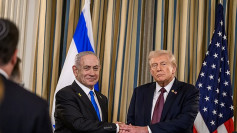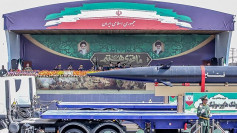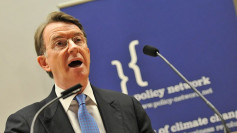Kremlin officials have refused for a third consecutive day to confirm whether Russian President Vladimir Putin will travel to Istanbul on Thursday for proposed peace talks with Ukraine, despite mounting international pressure and an open challenge from Ukrainian President Volodymyr Zelenskyy to meet face-to-face.
Speaking Tuesday to journalists including The Guardian, Zelenskyy stated: "If Putin does not arrive, and plays games, it is the final point that he does not want to end the war." He added that he would travel to Ankara to meet Turkish President Recep Tayyip Erdoğan and was prepared to fly to Istanbul "at a moment's notice" should Putin agree to talks.
Putin had proposed restarting direct negotiations in Istanbul during a surprise Kremlin address, calling for discussions "without preconditions." The Kremlin has yet to confirm who will represent Russia at the talks. "So far, no such instructions have been given," Kremlin spokesperson Dmitry Peskov told reporters in Moscow. He would announce the composition of the Russian delegation "once we receive the relevant instructions from the president".
Zelenskyy has made clear he will not engage with Russian officials other than Putin. "Undoubtedly, only Putin can make the decision to continue the war or stop the war," Ukrainian presidential adviser Mykhailo Podolyak said in an interview with exiled Russian journalists.
Donald Trump, currently visiting the Gulf region, has expressed support for the Istanbul initiative and said he may consider attending. "He'd like me to be there, and that's a possibility ... I don't know that he would be there if I'm not there. We're going to find out," Trump said Wednesday aboard Air Force One en route to Qatar. While noting he is scheduled to be in the United Arab Emirates on Thursday, Trump added: "That doesn't mean I wouldn't do it to save a lot of lives."
Trump has directed Secretary of State Marco Rubio and envoys Steve Witkoff and Keith Kellogg to attend the Istanbul summit. The U.S. president also met with Zelenskyy's team in February, where talks grew tense over strategic conditions for ending the war.
Brazil and China have thrown their support behind the proposed negotiations. "I'll try to talk to Putin," Brazilian President Luiz Inácio Lula da Silva said during a press conference in Beijing. "It costs me nothing to say: 'Hey, comrade Putin, go to Istanbul and negotiate, dammit.'" The two countries issued a joint statement calling direct negotiations "the only way to end the conflict."
Ukraine is expected to call for a 30-day ceasefire as a starting point for broader discussions. The proposal, supported by European Union leaders and endorsed by Trump, was rejected by Moscow over concerns that a ceasefire would allow Ukraine to regroup. Russian officials have instead proposed negotiations based on previous demands made in Istanbul in 2022, including recognition of Russia's annexations and neutrality clauses in Ukraine's constitution.
Zelenskyy previously described those terms as unacceptable. "There were never any negotiations; it was an ultimatum from a murderer," he said in 2022, referring to Putin. Moscow has maintained that the original Istanbul agreements could form the basis of future talks, but has since insisted Ukraine acknowledge "the reality on the ground."
Putin and Zelenskyy have met only once, in 2019. Since then, the Kremlin has repeatedly dismissed Zelenskyy's legitimacy and framed Kyiv's government as unwilling to compromise.
On the battlefield, Russia continues to make incremental gains. Putin said in March that Russian forces had "gained steam" and held the strategic initiative. Ukrainian officials warned that Moscow may be stalling negotiations to prepare for broader offensives. The Institute for the Study of War reported that Russia is "quickly replenishing front-line units with new recruits to maintain the battlefield initiative."






